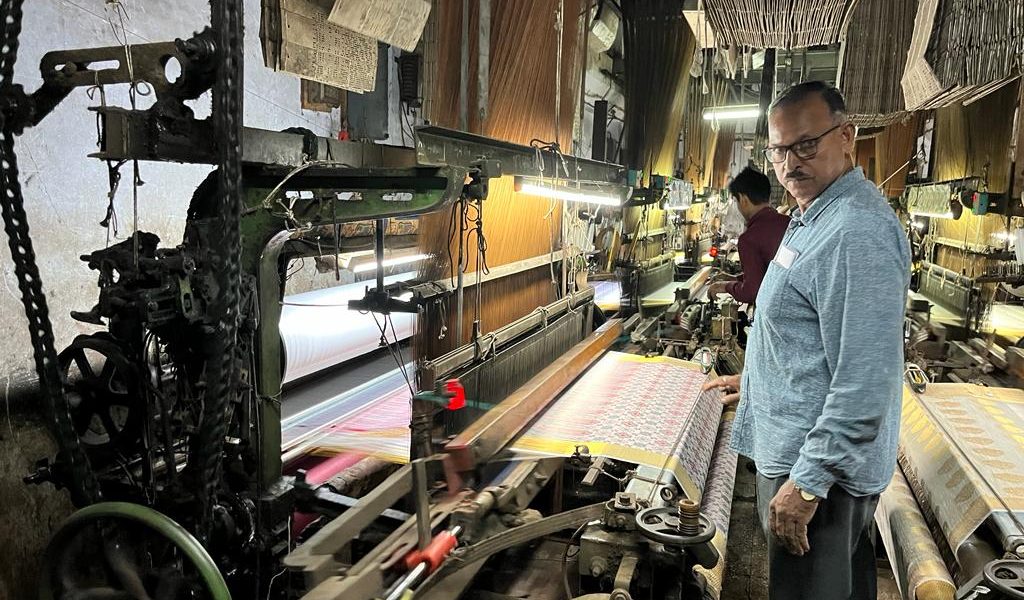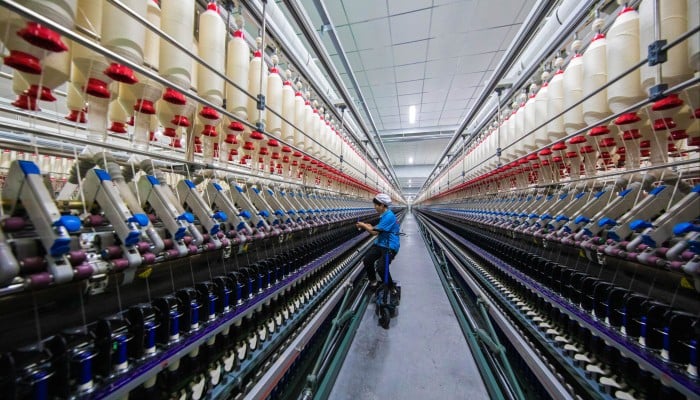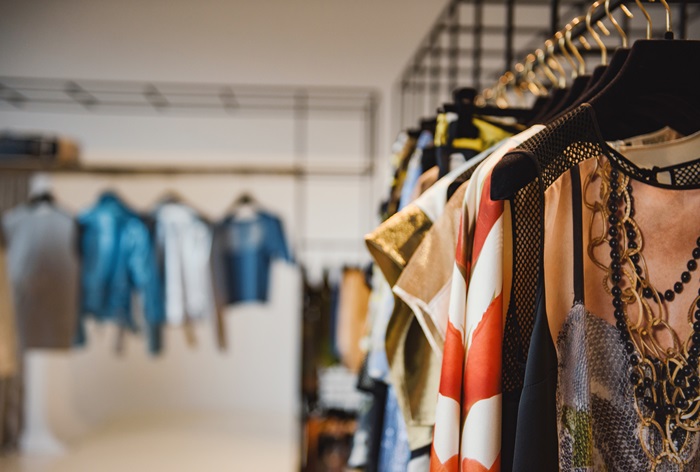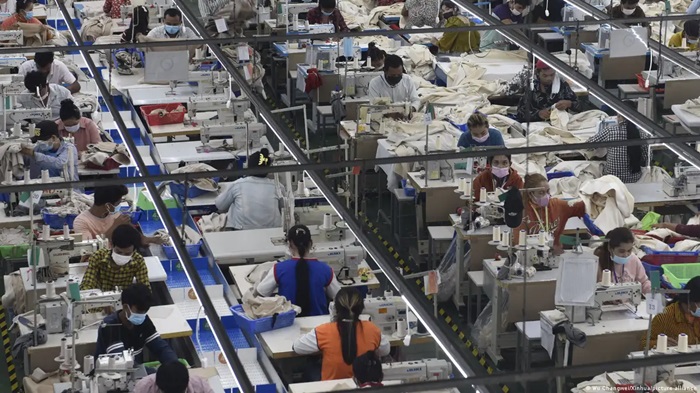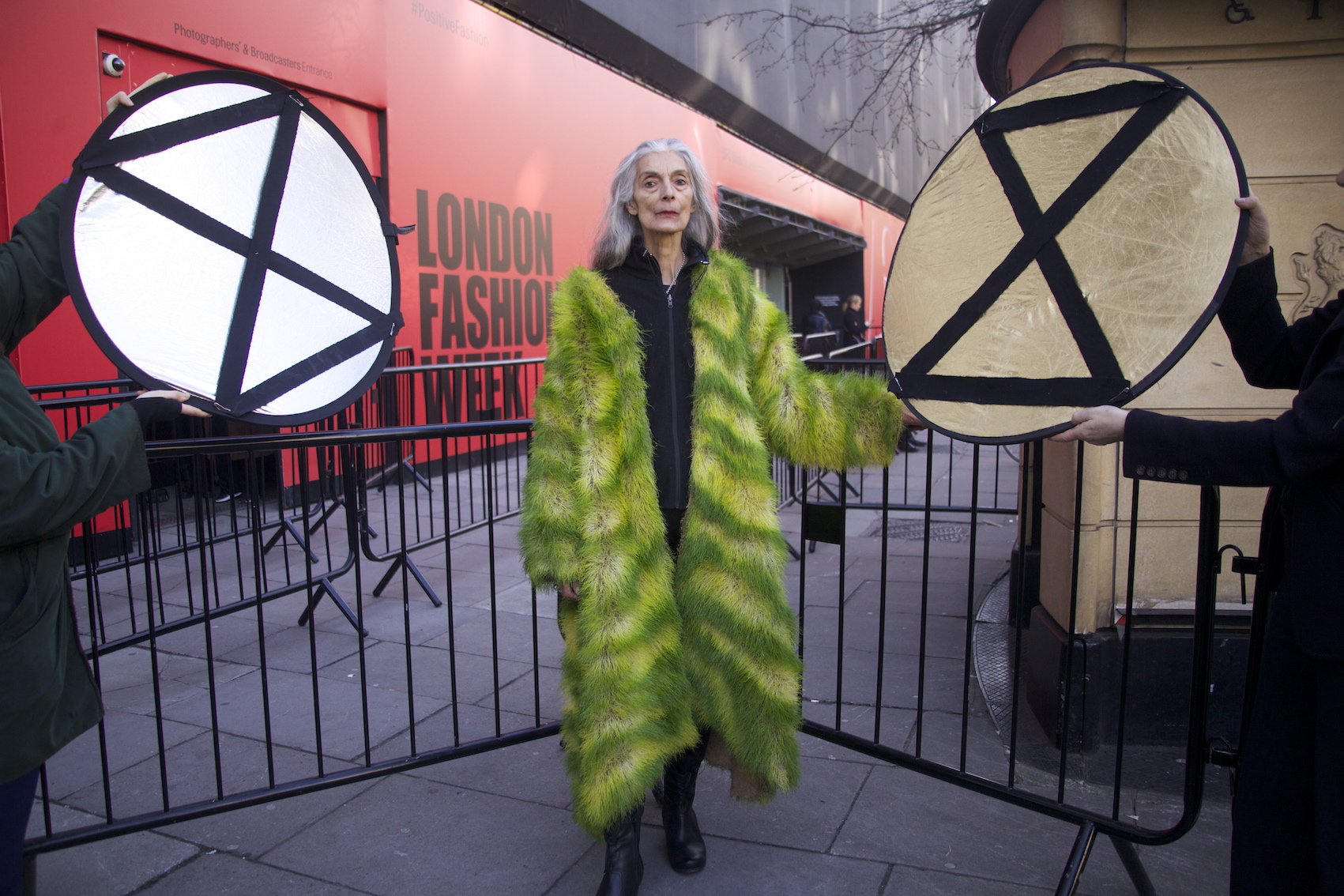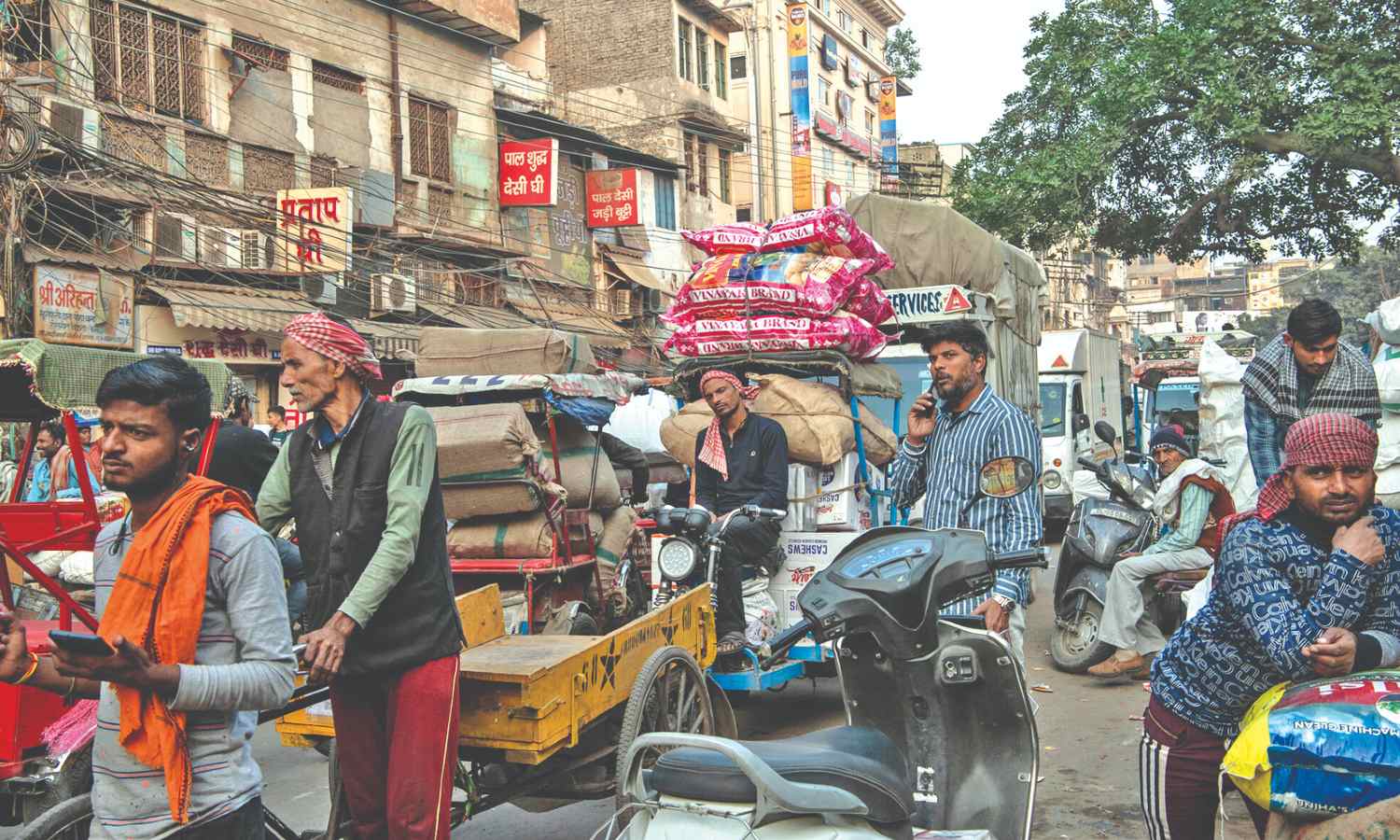FW
Demands for a living wage in low income garment manufacturing hubs like Bangladesh have been dismissed as 'nonsense' by a leading free market proponent and fellow of the Adam Smith Institute in London. The comments by journalist Tim Worstall were made in the context of continued factory closures and strikes in Bangladesh by garment workers who are asking for significant increase in minimum wages that are currently the lowest in the world.
Worstall claims the only way to increase wages in poor countries such as Bangladesh, where incomes and wages are low, would be to increase the GDP. He says to drive up minimum wages over GDP per capita is unethical and not one of the things the universe allows one to do.
He suggests wages are low because productivity is low and the only solution to low wages was to increase productivity. When the average value added of labour is the same as it is in the US, everyone will be getting paid US wages. He dismissed calls for a 'living wage' by organisations such as the Asia Floor Wage Alliance. In a lighter vein he says that since people are living on those wages, obviously it is possible to live on those wages. He later stated that the people who are asking for ‘Living wages’ mean is that wages should be high enough to afford the standard of living which the campaigners desire people should have.
"With uncertainties prevailing around Brexit, British clothing retailer Next recently warned about a tough trading year ahead. Shares in Next slid 11 per cent on the news, dragging down stock values of clothing competitors Marks & Spencer and Associated British Foods, which owns budget garment chain Primark. In a trading update, Next said weak pound would result in garment prices rising by up to 5 per cent in its financial year to January 2018. “In the year ahead we face a number of inflationary pressures in our cost base,” Next said in a statement."

With uncertainties prevailing around Brexit, British clothing retailer Next recently warned about a tough trading year ahead. Shares in Next slid 11 per cent on the news, dragging down stock values of clothing competitors Marks & Spencer and Associated British Foods, which owns budget garment chain Primark. In a trading update, Next said weak pound would result in garment prices rising by up to 5 per cent in its financial year to January 2018. “In the year ahead we face a number of inflationary pressures in our cost base,” Next said in a statement.
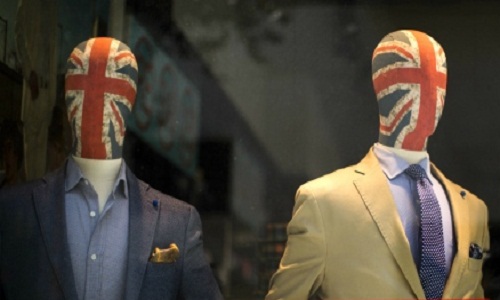
British annual inflation is at the highest level in more than two years as a slide in sterling to multi-year lows against the dollar and euro following the Brexit vote in June has lifted the cost of raw materials imported by Britain. “We may see a further squeeze in general spending as inflation begins to erode real earnings growth,” Next added. Its overseas sales would be boosted this year by the currency’s weakness making the UK’s exported goods more price-competitive for foreign buyers. Next says “In the light of exceptional levels of uncertainty in the clothing sector and with little visibility of the approach the UK government will be taking to Brexit”, the company decided to bring forward the announcement of dividend payments to shareholders through the use of surplus cash.
Sliding shares
Share market had a different story to tell with shares in Next crashing 11 per cent to £42.43 in morning trades on London’s benchmark FTSE 100 index, which was flat. Shares in Marks & Spencer shed 4.5 per cent and Associated British Foods slid 4.0 per cent compared with Tuesday’s closing values (3 January).
Analysts say, across the UK market, investors need to start to face up to the additional challenges associated with the long and tortuous Brexit process. So far, this has mainly involved winners and losers from a weak pound. As 2017 unfolds, the effects are likely to be felt more widely across the UK economy.
The Copenhagen Fashion Summit will be held on May 11, 2017. This is the fifth edition of the event. Over the years it has manifested as the leading forum for sustainability in fashion and has proven to be a safe neutral environment to launch new initiatives, where businesses, academia, non-profit organisations, policy-makers and media can come together to join forces and make actual commitments to change.
Leaders from the fashion sector, NGOs, policy and academia will gather to discuss how the fashion industry can contribute to a world beyond the next season. The summit will present a curated program of keynotes and discussions and sessions with leading voices who will share their experiences and commitments to inspire future action.
The three trillion-dollar fashion industry is also one of the most resource and labor intensive industries in the world, emphasising the need for a unified effort to increase the sustainability of the industry across categories, borders and size of businesses.
This year launches the Global Fashion Agenda, whose mission is to mobilise the global fashion industry and transform the way fashion is produced and consumed. This will be done by engaging the broader fashion community on the most pressing issues.
Exports of apparel accessories and clothing moved up in the first 10 months of last year. From January to October 2016, the country exported garments and clothing accessories worth 836.7 million dinars an increase of 1.7 per cent over exports of 822.8 million dinars made in the corresponding period of 2015.
Overall, garment exports accounted for 22.89 per cent of around 3.655 billion dinars exports by Jordan during the ten-month period, according to a data released by the Jordanian Department of Statistics. Category-wise, exports of accessories of knitted or crocheted apparel and clothing earned 792.129 million dinars showing a 1.27 per cent jump over exports totaling 782.130 million dinars made during the same period in 2015.
Exports of non-knitted garments shot up by 9.62 per cent year-on-year and contributed 44.570 million dinars during the period under review. In October last year, Jordan’s exports of knitted apparel and accessories increased by 10.5 per cent to 68.315 million dinars as against exports of 61.821 million dinars made in the corresponding month of last year. The textile and clothing sector in Jordan employs about 24,000 people with major players being American Jordanian Company for Apparel (Jordache), Casual Wear Apparel LLC, Central Clothing Company, EAM Maliban Textiles, El Zay Ready Wear Manufacturing, Golden Fingers, and Prime Five Garment Manufacturing among others.
In its December sales report, GAP Inc, the US-based apparel retailer has reported its net sales moved up 1 per cent in November and December 2016 compared to that of last year. On the other hand, its comparable sales stood at a positive 2 per cent for the same period as against that of last year.
Delving on the topic, Sabrina Simmons, Chief Financial Officer, Gap Inc says his company was pleased with the improved momentum that was seen over the holiday season driven primarily by a positive customer response at Gap and Old Navy. Based on these results, the company now expects a full-year adjusted earnings per share to be modestly above the high end of our previous adjusted guidance range of $1.92.
The apparel brand also unveiled its net sales and comparable sales for the five-week period that ended December 31, 2016. The net sales surged 3 per cent to $2.07 billion compared to $2.01 billion the last year. Also, the company’s comparable sales were up 4 per cent as against a 5 per cent decrease last year.
In the period under review, comparable sales of Banana Republic Global were down 7 per cent as compared to a negative 9 per cent for the same period last year and Old Navy Global stood at positive 12 per cent when compared to negative 7 per cent last year. On the other hand, GAP Global generated positive 1 per cent comparable sales against negative 2 per cent last year for the reporting period.
To facilitate development of Rs 1,800 crores mega textile park at Pinjrat the Southern Gujarat Chamber of Commerce and Industry (SGCCI) will sign a MoU with the Gujarat government during the course of the Vibrant Gujarat summit. Disclosing details, SGCCI president B S Agarwal said the mega textile park is a dream project and that will change the face of Surat's textile sector. The Gujarat government will allot 70 lakh sq. mt. land on Pinjrat near Olpad.
The SGCCI has appointed around 15 directors to head the SPV for the mega textile park. The project conceived by the SGCCI will accommodate around 100 textile processing units, 40 water jet weaving units, around 225 garmenting units and other textile ancilliary units, attracting a total investment of Rs 10,000 crores.
As per the proposed, the park will house giant textile processing units, each having average capacity of manufacturing over three lakh mt. of fabric per day. Around 50 per cent of the fabric manufactured in the processing units will be converted into home textiles and garments. The rest of the fabric will be sold outside the state. Presently, the textile sector contributes around 40 per cent of the synthetic cloth in the country. But its share in export is meager because the export market requires huge quantity of cloth of same quality which cannot be supplied by the processing units in Surat.
In order to bridge the gap between production and consumption of raw cotton, Pakistan will have to foot a bill of around $1.58 billion for import of 4.5 million bales (170 kg each). In 2015-16, cotton production clocked up to 15 m bales in 2014-15 and 9.5 m bales. It is expected to be around 10.54 m bales in 2016-17.
Though Pakistan is the third largest raw cotton exporter it has been an importer for the last two years. Last year, the country imported around 2.7m bales from India at a cost of $800 m. The country has also lost its fourth position in the world in terms of the production of raw cotton. There was a time when Pakistan was the largest exporter of cotton yarn globally, says Asif Inam, Chairman of the All Pakistan Textile Mills Association (APTMA) for the Sindh-Balochistan zone.
About two months ago, cotton prices in India were low owing to higher cotton production estimates, Inam says. But prices have moved up substantially now, making the import of cotton from across the board costly, he added. In the beginning of the cotton season in India in October, prices were as low as Rs 35,000 per candy (356kg). More recently, the prices soared to Rs 50,000 per candy due to the intervention of the Cotton Corporation of India (CCI).
Highlighting the challenges being faced by millers in Pakistan, the textile industry has come up with a set of recommendations for its revival with the help of a growth-led strategy as exports have consistently weakened over time. All Pakistan Textile Mills Association (APTMA) chairman Aamir Fayyaz outlined the proposals at a meeting with Trade Development Authority of Pakistan (TDAP) chairman SM Muneer. They discussed restoration of the viability and growth of the textile industry.
Fayyaz pointed out the exports had slid because of high cost of doing business. In the previous fiscal, trade deficit reached $28 billion as exports dropped to $19.5 billion from $24.5 billion in 2013. He suggested the government should remove customs duty on import of cotton, allow duty-free import of all man-made fibres that were not being manufactured in the country and permit the drawback of taxes and levies at 4 per cent on export of yarn and grey fabric, 5 per cent on processed fabric and 6 per cent on home textiles, made-ups and garments.
He said the government should allow long-term financing facility, input tax refund on packaging materials under the zero-rated regime and lift the moratorium on new gas/re-gasified liquefied natural gas (LNG) connections for captive power plants. He proposed that a multi-year tariff, determined by the National Electric Power Regulatory Authority (Nepra) for the industry, should be notified without including the surcharge, which would make available electricity at the regionally competitive price of Rs7 per kilowatt-hour.
Revealing that $3.5 billion worth of industry capacity was shut, he emphasised the need for bringing that capacity back to production as well as restoration of investor confidence in order to encourage them to execute their investment plans. Speaking on the occasion, the TDAP chairman said exports should always be the top-most priority of the government for instilling confidence in the entrepreneurs.
The Maharashtra government has decided to set up a Rs 300 crore garment park in Solapur to promote the city as a 'major garment hub'. Nearly 27 acres of land belonging to the erstwhile Narsing Girji Mill in Solapur has been identified, says state textile minister Subhash Deshmukh.
The minister was inaugurating the three-day international exhibition on uniform and textiles in Solapur. The exhibition is being hosted by Shree Solapur Readymade Garment Manufacturing Association in co-ordination with the Maharashtra Textile Ministry and Mafatlal Fabrics. The bhoomi pujan (ground breaking ceremony) of the park would be held on January 26. The government will provide all required infrastructure to successfully complete and launch this Garment Park.
Amit Kumar Jain of Shri Solapur Readymade Kapad Utpadak Sangh said the total cost for the garment park would be around Rs 300 crores. The park will generate enough employment potential which will provide employment to over 60,000 bidi workers, besides other unemployed persons.
The uniforms industry including school, corporate wear and government forces is worth over Rs 18,000 crore of which nearly Rs 10,000 crore is in the organised sector. Of the rest, Solapur contributes nearly Rs 1,100 crore with uniforms churned out from around 1,000 plus manufacturing units in the city employing over 60,000 skilled workers.
The winter edition of Ethical Fashion Show will be held in Berlin from January 17-19. Bernhard Felmberg of the Federal Ministry for Economic Cooperation and Development will be among the speakers where he will provide an update on the work of the German Partnership for Sustainable Textiles.
Highlights of the trade fair are: two fashion shows, 'Salonshow' and 'Ethical Fashion on Stage' as well as presentations, panel discussions and press tours. The fashion show will be presented in a new location, the Energie forum by the River Spree.
At the Salonshow on January 18, collections will be from a range of eco fashion labels including Austriandesign.at, Biaggi, Blue Valley, Inti Ferreira, Johanna Riplinger, Lanius, Lanius X Kunert, Royal Blush, Somyso, Studio Elsien Gringhuis, Studio Jux and Xess+Baba. Later that day, the 'Ethical Fashion on Stage' show will present looks by B Frog, C. Pauli, Chapati, Colombo3, Elementum, Greenbomb, Jaspe, Komodo, Naturaline, Organication, Shirts for Life, Tranquillo and Ukua Lov Baby. To finish the show, lavera Naturkosmetik will present the winner of the lavera Green Fashion award.


